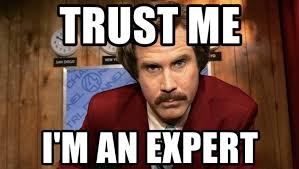Why Therapists Adopt an Expert Stance in Therapy (Even When It Doesn’t Work): A Research-Informed and Contextual Analysis

1. Historical Foundations of the Expert Model
-
Medical Model Influence: Psychotherapy, especially in countries like India, is still heavily influenced by the medical model, where the professional is the "knower" and the patient is the "receiver." This model emphasizes diagnosis, treatment, and prognosis, and therapists are expected to "fix" the issue.
-
Training Frameworks: Traditional clinical psychology training, particularly in Indian institutions, is often rooted in behaviorist or cognitive-behavioral paradigms, where the therapist applies "techniques" to "treat" symptoms. This positions the therapist as a technical expert rather than a collaborator.
-
Western Legacy: Many therapeutic modalities imported into India were developed in cultural contexts that emphasized individualism, autonomy, and structured treatment frameworks. These don't always translate well to India's relational, community-oriented context.
Key Research:
-
Wampold, B. E. (2015) highlights that common factors like therapeutic alliance and empathy are stronger predictors of outcome than specific techniques.
-
Duncan, B., Miller, S., & Sparks, J. (2004) argue that the therapist’s humility and responsiveness to the client matter more than technique.
2. The Appeal and Security of the Expert Role
-
Professional Insecurity: In a developing profession like psychotherapy in India, therapists may feel a need to justify their role by showing competence through techniques and labels. The expert stance provides a sense of control, clarity, and validation in a still-ambiguous field.
-
Client Expectations: Many Indian clients approach therapy expecting a directive, advice-giving model akin to seeing a doctor, guru, or elder. This can pressure therapists to perform expertise even when they recognize the limits of this approach.
-
Institutional Pressures: Workplaces, schools, and clinics often measure therapist performance by “improvement in symptoms,” reinforcing a quick-fix, technique-heavy approach.
3. Cultural Dissonance: When Expertise Backfires
-
Hierarchical Culture: India has a deeply ingrained hierarchical culture, where authority is often respected but also feared or resisted. An overt expert stance can alienate clients, particularly younger, urban individuals seeking a collaborative, exploratory space.
-
Client Shame and Defensiveness: Clients may feel judged, misunderstood, or inferior when therapists over-rely on techniques or intellectualize their suffering. This creates rupture rather than repair.
-
Disconnect from Subjectivity: An overly technical approach often fails to capture the nuanced, layered, and culturally-specific ways distress is experienced and communicated in India (e.g., somatization, spiritual idioms of distress).
Key Research:
-
Kirmayer, L. J. (2007) discusses the importance of cultural meaning-making in therapy and the risks of applying universalist frameworks.
-
Sriram, T. G., & Chandrashekar, C. R. (2005) note that Indian clients often use culturally-mediated expressions of distress that don't fit neatly into diagnostic boxes.
4. Therapy as a Relational and Co-Constructed Process
-
Emerging Models: Relational, dialogical, and constructivist approaches emphasize collaboration, curiosity, and mutual exploration. These are gaining ground globally but are still under-represented in Indian training and practice.
-
Therapist Reflexivity: Research supports that therapists who adopt a stance of cultural humility, openness, and dialogical attunement build better alliances and achieve better outcomes.
-
Resistance to Change: Shifting from an expert stance to a collaborative one requires unlearning professional hierarchies, tolerating ambiguity, and re-defining what therapeutic success looks like.
Key Research:
-
Norcross & Wampold (2011) emphasize that responsiveness to client preferences and values significantly improves therapy outcomes.
-
Hardy, G. E., Cahill, J., & Barkham, M. (2007) show that relational qualities of therapists are central to effective outcomes across modalities.
5. Implications for Practice in India
-
Therapist Training Reform: Curriculums need to balance skill-building with training in self-reflexivity, cultural awareness, and humility.
-
Supervision and Peer Support: Therapists need spaces where they can explore their own need for control, fear of incompetence, and discomfort with not-knowing.
- Public Education: Redefining therapy as a space for meaning-making, not fixing, can help align client expectations with more relational approaches.
6. Multiple Skill Domains
Another influential body of research (e.g., the chapter on therapist skills in How and Why Are Some Therapists Better Than others? from the American Psychological Association) breaks down clinical expertise into several key domains:
-
Technical Skills: Delivering interventions and specific strategies.
-
Relational Skills: Forming, maintaining, and repairing the therapeutic alliance.
-
Conceptual Skills: Creating a coherent understanding of a client’s difficulties by integrating conceptual knowledge with case-specific data.
-
Cultural Skills: Adapting therapy to respect and effectively incorporate the client’s cultural context.
These studies indicate that the “expert stance” isn’t simply about possessing a repertoire of techniques; it demands the ability to fluidly navigate among these domains based on what the client needs at a given moment. This multifaceted expertise, which develops over years of training and experience, is what differentiates a skilled, effective therapist from one who merely “throws out” interventions without integration
.Conclusion
Therapists often adopt an expert stance out of professional conditioning, cultural expectations, and systemic pressures. But research and clinical wisdom consistently show that what heals in therapy is not expertise alone—but presence, attunement, and the ability to be with, not fix, the other. In India, there is an urgent need to decolonize and indigenize therapeutic practice, and that begins with questioning the overuse of expert-driven models that don’t always meet clients where they are.
Hi, I'm Kanishka—the author of this blog and a clinical and forensic psychologist. I’m dedicated to offering psychotherapy that goes beyond one-size-fits-all techniques, focusing instead on culturally sensitive, collaborative, and deeply human ways of healing
